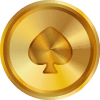30.
Jan 2024
ECJ se bavi tužbama za oporavak od nezakonitog kockanja na mreži
Nemački građanski sudovi već su naložili nelegalnim provajderima kockanja na mreži da vrate gubitke potrošačima na stotine puta. Tim pitanjem se trenutno bave i sudije Evropskog suda pravde (ECJ). Ako se tamo objavi odluka prilagođena potrošačima, to bi enormno ojačalo prava nemačkih kockara. Međutim, još uvek nije jasno kada će odluka biti objavljena.
ECJ se bavi tužbom protiv operativne kompanije Lottoland
Konkretno, Evropski sud pravde se bavi tužbom nemačkog kockara protiv European Lotto and Betting Ltd i Deutsche Lotto- und Sportvetten Ltd, sa sedištem na Malti. Ova druga kompanija, između ostalog, vodi veb lokaciju Lottoland, koja je popularna u Nemačkoj.
Lottoland nije zvanična tačka za prihvatanje lutrije, već takozvana sekundarna lutrija. To znači da se tu mogu staviti opklade na ishod izvlačenja lutrije. Pored toga, Lottoland nudi i igrice za virtuelne mašine, takozvane slotove. Iako kompanija ima maltešku licencu za igre na sreću, još uvek nije licencirana u Nemačkoj.
Uopšteno govoreći, u ovoj zemlji je postojala potpuna zabrana većine igara na sreću na mreži do 2021. Samo sportsko klađenje je bilo deo sive zone, pri čemu su prvi provajderi sportskog klađenja na mreži dobili nacionalne licence tek u oktobru 2020. Pored toga, 2012. , Šlezvig-Holštajn je bila jedina savezna država koja je dozvolila onlajn kockanje. Međutim, kompanijama licenciranim tamo bilo je dozvoljeno da ciljaju samo stanovnike najsevernije države.
O tome moraju da odluče sudije ESP
Tužilac sada navodi da ugovori između kockara i tuženog nikada nisu bili punovažni zbog neprihvatljivosti ponude za kockanje. Tužilac stoga zahteva nadoknadu svih gubitaka u vezi sa kockanjem koje je pretrpeo dok je učestvovao u onlajn slot igrama i sekundarnim lutrijama.
Optuženi, međutim, tvrdi da je to bilo i nastavlja da bude legalno u Nemačkoj zbog slobode EU da pruža usluge putem svoje malteške licence za igre na sreću. Sloboda EU pružanja usluga reguliše da je kompanijama iz zemlje EU dozvoljeno da nude svoje usluge širom ekonomske unije. Sada sudije ESP-a moraju da odluče koji argument će slediti. U tom cilju, malteški sud im je dostavio ukupno sedam pitanja.
Kada će biti objavljena presuda?
Posmatrači procesa pretpostavljaju odluku prilagođenu potrošačima, pošto su sudije Evropskog suda pravde već u prošlosti jasno dale do znanja da nacionalnim zakonima o kockanju može da se prida veća težina od slobode pružanja usluga EU zbog njihove prirode koja štiti potrošače .
U tom pogledu, sasvim je zamislivo da će sudije ESP-a odlučiti da kockar ima pravo na nadoknadu svojih gubitaka od kockanja i da je tužena kompanija bila i jeste nelegalna u Nemačkoj uprkos malteškoj licenci. Ova odluka bi mogla da koristi stotinama hiljada kockara iz cele Evrope.
30.
Jan 2024
ECJ DEALS WITH CLAIMS FOR RECOVERY FROM ILLEGAL ONLINE GAMBLING
German civil courts have already ordered illegal online gambling providers to pay back gambling losses to consumers hundreds of times. The judges at the European Court of Justice (ECJ) are currently also dealing with the issue. If a consumer-friendly ruling is announced there, it would enormously strengthen the rights of German gamblers. However, it is still unclear when a decision will be announced.
ECJ deals with lawsuit against Lottoland operating company
Specifically, the European Court of Justice is dealing with a lawsuit brought by a German gambler against European Lotto and Betting Ltd and Deutsche Lotto- und Sportwetten Ltd, based in Malta. The latter company operates, among other things, the Lottoland website, which is popular in Germany.
Lottoland is not an official lottery acceptance point, but rather a so-called secondary lottery. This means that bets on the outcome of lottery draws can be placed there. In addition, Lottoland also offers virtual machine games, so-called slots. Although the company has a Maltese gaming license, it has not yet been licensed in Germany.
In general, there was a total ban on most online games of chance in this country until 2021. Only sports betting was part of a gray area, with the first online sports betting providers only receiving nationwide licenses in October 2020. In addition, in 2012, Schleswig-Holstein was the only federal state to allow online gambling. However, companies licensed there were only allowed to target residents of the nation's northernmost state.
The ECJ judges have to decide on this
The plaintiff now argues that the contracts between the gambler and the defendant were never valid due to the inadmissibility of the gambling offer. The plaintiff is therefore demanding reimbursement for all of the gambling losses he suffered while participating in online slot games and secondary lotteries.
The defendant, however, argues that it was and continues to be legal in Germany due to the EU freedom to provide services through its Maltese gaming license. The EU freedom to provide services regulates that companies from an EU country are allowed to offer their services throughout the economic union. Now the ECJ judges have to decide which argument to follow. To this end, a Maltese court submitted a total of seven questions to them.
When will a verdict be announced?
Process observers are assuming a consumer-friendly decision, as the judges at the European Court of Justice have already made it clear in the past that national gambling laws can be given greater weight than the EU freedom to provide services due to their consumer-protecting nature.
In this respect, it is entirely conceivable that the ECJ judges will decide that the gambler is entitled to reimbursement of his gambling losses and that the defendant company was and is illegal in Germany despite its Maltese license. This decision could benefit hundreds of thousands of gamblers from all over Europe.
30.
Jan 2024
EUGH BEFASST SICH MIT RÜCKFORDERUNGSANSPRÜCHEN AUS ILLEGALEM ONLINE-GLÜCKSSPIEL
Deutsche Zivilgerichte haben illegale Online-Glücksspielanbieter bereits hundertfach zur Rückzahlung von Spielverlusten an Verbraucher verurteilt. Momentan befassen sich auch die Richter am Europäischen Gerichtshof (EuGH) bereits mit der Thematik. Sofern dort ein verbraucherfreundliches Urteil verkündet wird, würde dies die Rechte von deutschen Glücksspielern enorm stärken. Wann eine Entscheidung verkündet wird, ist bislang allerdings unklar.
EuGH befasst sich mit Klage gegen Lottoland-Betreibergesellschaft
Konkret befasst sich der Europäische Gerichtshof mit einer Klage eines deutschen Glücksspielers gegen die European Lotto and Betting Ltd und die Deutsche Lotto- und Sportwetten Ltd mit Sitz in Malta. Die letztgenannte Firma betreibt unter anderem die in Deutschland beliebte Website von Lottoland.
Lottoland ist keine offizielle Lottoannahmestelle, sondern eine sogenannte Zweitlotterie. Das bedeutet, dass dort Wetten auf den Ausgang von Lotterieziehungen abgeschlossen werden können. Darüber hinaus bietet Lottoland auch virtuelle Automatenspiele, sogenannte Slots, an. Das Unternehmen besitzt zwar eine maltesische Glücksspiel-Konzession, ist jedoch in Deutschland bislang nicht lizensiert worden.
Generell gab es hierzulande bis 2021 ein Totalverbot für die meisten Glücksspiele im Internet. Lediglich Sportwetten waren Teil eines Graubereichs, wobei die ersten Online-Sportwettenanbieter auch erst im Oktober 2020 bundesweit gültige Lizenzen erhielten. Darüber hinaus erlaubte Schleswig-Holstein 2012 als einziges Bundesland Online-Glücksspiel. Dort lizensierte Unternehmen durften sich allerdings auch nur an Bewohner des nördlichsten Bundeslands der Nation richten.
Darüber müssen die EuGH-Richter entscheiden
Die Klägerseite argumentiert nun, dass die Verträge zwischen dem Glücksspieler und der Beklagten aufgrund der Unzulässigkeit des Glücksspielangebots nie gültig waren. Daher fordert der Kläger die Erstattung seiner vollständigen Spielverluste, die er im Rahmen der Teilnahme an Online-Automatenspielen und Zweitlotterien erlitten hat.
Die beklagte Partei argumentiert hingegen, dass sie aufgrund der EU-Dienstleistungsfreiheit durch ihre maltesische Glücksspiellizenz auch in Deutschland legal gewesen sei und weiterhin ist. Die EU-Dienstleistungsfreiheit regelt nämlich, dass Unternehmen aus einem EU-Land ihre Dienstleistungen in der gesamten Wirtschaftsunion anbieten dürfen. Nun müssen die EuGH-Richter entscheiden, welcher Argumentation sie folgen. Dafür wurden ihnen insgesamt sieben Vorlagefragen durch ein maltesisches Gericht vorgelegt.
Wann wird ein Urteil verkündet?
Prozessbeobachter gehen von einer verbraucherfreundlichen Entscheidung aus, da die Richter am Europäischen Gerichtshof bereits in der Vergangenheit deutlich gemacht haben, dass nationale Glücksspielgesetze aufgrund ihres verbraucherschützenden Charakters höher gewichtet werden können als die EU-Dienstleistungsfreiheit.
Insofern ist durchaus denkbar, dass die EuGH-Richter entscheiden, dass der Glücksspieler Anspruch auf die Rückerstattung seiner Spielverluste hat und das beklagte Unternehmen trotz seiner maltesischen Lizenz in Deutschland illegal war und ist. Von dieser Entscheidung könnten Hunderttausende Glücksspieler aus ganz Europa profitieren.
Automatski prevedeno:













